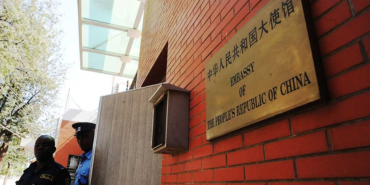US Govt Tells Kenyans to Stay Vigilant Against Fake USAID Officials

United States Agency for International Development USAID has made it clear that they have no association with fraudulent social media posts falsely claiming to invite individuals and organizations to a high-profile delegates summit called Global Entrepreneurship Network (GEN).
A group of scammers masquerading as officials from GEN crafted a post to con individuals into providing them with money. USAID Kenya intends to caution the public regarding this fraudulent scheme and clarify that they have no association with it. David Gosney, the Managing Director of USAID, emphasizes that neither the agency nor its partners impose fees for the application procedure.
The deceptive post aimed to obtain funds from individuals and businesses by demanding payment for access to the Global Entrepreneurship Summit Network. The post outlined the charges for accreditation, with complete accreditation priced at $400, encompassing a fee of $120 for clearance and records. The certifications were priced at $60 and $140, respectively. Meanwhile, organizations desiring full accreditation were obligated to pay $770.
This fee was divided into several categories, including a $270 clearance and records fee, a $100 certification fee, a $120 accreditation process fee, and $280 in legal charges. As indicated in the announcement, the forum was planned to be conducted online and would encompass around 100 esteemed events and chances for networking. The post also indicated that the forum would encompass the World Leaders Investment Summits, Ministerial Round Tables, the Investment Promotion Conference, the Institutional Investors for Sustainable Development, and the introduction of worldwide initiatives for investment in development.
USAID Kenya's notice comes in response to recent warnings by the Directorate of Criminal Investigations (DCI) regarding scammers who are using new tactics to deceive unsuspecting WhatsApp users through text messages. According to investigators, these alleged scammers employ a method called phishing to legally obtain personal and mobile information from unsuspecting individuals.








Comments
I paid hoping to participate…
Permalink
I paid hoping to participate and see balls and now I am highly disappointed to hear it is a scam. Can anyone recommend a good avenue of accessing balls?
Add new comment